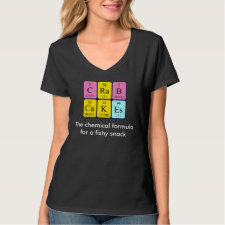
Authors: Liang SA, Wan JF, Zhu JL, Cao XJ
Article Title: Effects of porogens on the morphology and enantioselectivity of core-shell molecularly imprinted polymers with ursodeoxycholic acid.
Publication date: 2010
Journal: Separation and Purification Technology
Volume: 72
Issue: (2)
Page numbers: 208-216.
DOI: 10.1016/j.seppur.2010.02.011
Alternative URL: http://www.sciencedirect.com/science/article/B6THJ-4YDT44J-2/2/1fbc27bb1d3102ed066ced65781755e1
Abstract: Porous core-shell molecularly imprinted polymers (MIPs) for ursodeoxycholic acid (UDCA) were prepared using acrylamide (AM) as functional monomer and ethylene glycol dimethacrylate (EGDMA) as cross-linker. Molecular simulation program was used to calculate the interaction energy (Δ E) of monomer-template complex with and without porogens. The effect of porogens on the morphology and enantioselectivity of UDCA-imprinted polymers was investigated. Results showed that the existence and type of porogens influenced the ability of the particles to rebind UDCA. When liquid solvents of toluene, dodecyl alcohol/cyclohexanol (1/2, v/v), and acetone were used as porogens, toluene showed the best enantioselectivity to UDCA with separation factor (α) 3.24 and the largest specific surface area 158.83ám2/g, which was consistent with the molecular simulation results. As the solid granules of CaCO3 and Na2SO4 as porogens, CaCO3 exhibited better adsorption behavior and larger specific surface area than Na2SO4. In addition, a novel MIP was synthesized with solid granules of CaCO3 and liquid solvent of toluene as co-porogen. Comparing with the MIP using organic solvents or solid granules as a porogen, the improved MIP showed larger specific surface areas and pore volumes. The MIP with co-porogen also had good dynamic adsorption capacity (6.5á¦á0.1ámg/ml). The MIP with co-porogen was used for the chromatographic separation of UDCA and its enantiomer chenodeoxycholic acid (CDCA) with separation factor 1.93
Template and target information: ursodeoxycholic acid, UDCA
Author keywords: Molecularly imprinted polymers, porogens, UDCA, enantioselectivity



Join the Society for Molecular Imprinting

New items RSS feed
Sign-up for e-mail updates:
Choose between receiving an occasional newsletter or more frequent e-mail alerts.
Click here to go to the sign-up page.
Is your name elemental or peptidic? Enter your name and find out by clicking either of the buttons below!
Other products you may like:
 MIPdatabase
MIPdatabase









